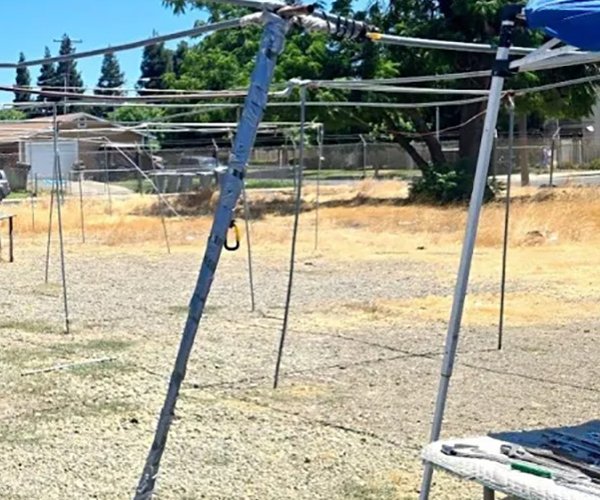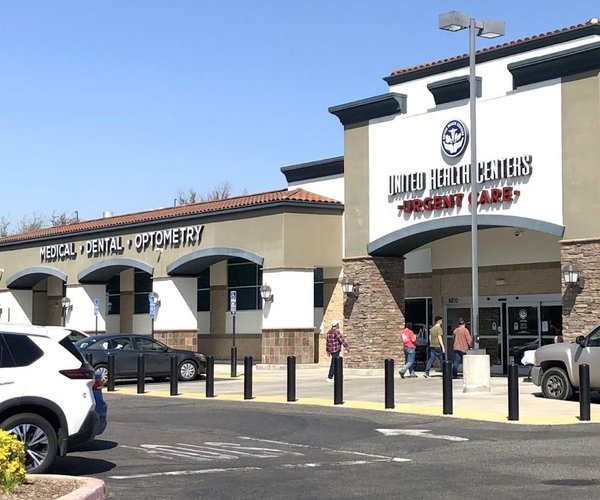The Turlock City Council on Tuesday adopted a budget for the next fiscal year which benefits from several new streams of revenue after years of financial woes, though years of instability and an effort to be transparent will see the document reviewed on a regular basis.
The 2021-2022 budget was approved in a 3-2 split vote, with Councilmembers Andrew Nosrati and Nicole Larson dissenting while Mayor Amy Bublak, Vice Mayor Pam Franco and Councilwoman Rebecka Monez voted in favor of what City officials describe as a “living document.”
The budget is the result of four budget workshops with the Council — all of which took place during a global pandemic — following two fiscal years where 35 unstaffed positions across the City’s departments were frozen in an effort to achieve a balanced budget. The new budget is the City’s first opportunity in more than a decade to begin reinstating services as a result of new revenues, which are estimated to add $11 million in new money compared to last year.
Much of that new funding comes from Measure A, the sales tax increase approved by Turlock voters last fall, and more revenue is also expected through the cannabis pilot program and, eventually, COVID relief funding through the American Rescue Plan Act. As a living document, the budget will be reviewed and assessed at Council meetings on a regular basis.
During one of the previous budget workshops, former Interim City Manager Gary Hampton cautioned that unexpected increases in revenue, including sales tax, are likely part of what he defined as an “anomaly year.”
“It’s very clear that revenue this year is outpacing the forecast. It is an anomaly year from my perspective and staff’s perspective; however, our sales tax consultant has suggested that we can expect a modest increase in our revenues. I’m recommending against that. At this point we’re waiting to see what happens to our economy when the federal government takes the measure to remove restrictions on banks on foreclosed homes. How many people are we going to have homeless that we’re going to have to assist? What’s that going to do to the economy?” Hampton asked. “And secondly, when the state removes the restriction on landlords from the eviction process, we don’t know how many people are going to be homeless. We don’t know what that’s going to do to our economy. This is a living document…I’m recommending that because of the anomaly that we’re in; because I’ve seen the federal government send out three different assistance checks and those checks spiked our sales tax revenues, and now the State of California is getting ready to send out another check. To use that to base our forecast is highly questionable, dangerous and questionable.”
Despite the new revenues, the City is also expected to experience a $2 million increase to its base operational costs due to an increase in PERS, the City employees’ retirement plan.
In addition to administration changes in the budget, which will see the reinstatement of the Administrative Services Director position to oversee human resources, payroll and Information technology along with the development of a finance department, a fire feasibility study augmentation of $25,000 will be funded with Measure A revenues as well as police training in the amount of $63,200 from measure A funding.
The City Council also directed 10% of Measure A revenues to be transferred to the unassigned general fund reserve in order to rebuild its dwindling balance, and another 50% of Measure A revenues will be dedicated to road maintenance.
The City is also planning for an additional $1.5 million in cannabis revenue for fiscal year 2021-2022, a majority of which has come through the 5% public benefit fee paid by retail cannabis business owners, for a total balance of $2.4 million. While the City has nearly $63,000 of that money set aside for youth drug diversion and education, it has yet to spend for that purpose.
Additionally, the City Council elected to utilize $300,000 in Transit Occupancy Tax revenue as an annual repayment tool to offset the $2.5 million deficit in the Engineering fund, an effort which will take eight to nine years to complete.
Two positions which were cut as part of last year’s budgeting process, Police Chief and Fire Chief, will be budgeted once again, though Interim Fire Chief Gary Carlson told the Council the Turlock Fire Department is still not fully funded and will run out of money to staff all four fire stations through late October. As the budget is a living document that the Council can augment throughout the fiscal year, Carlson will regularly report back on how the department is doing in terms of funding.
Both Larson and Nosrati cited the lack of full funding for the fire department during their comments on the budget, while Larson also criticized the large sum of money “accumulating” in the cannabis fund that should be spent on youth education and prevention.
“It is a problem of ours if we are not doing our best to make sure (the cannabis prevention funding) gets into the community as quickly as possible, and right now that’s on us that we’re not doing that,” Larson said, then continued, “This is fiscal year 2021-2022 and we are not sufficiently funding our fire operations. I understand that we want to keep a close eye on it...but I will not...I don’t agree with having that be the precedent or principle value here when we have an entire city to protect.”
“The budget I want to pass has less investment in administrative services and legal costs, and more in roads more in public safety...it feels like we’re making our firefighters beg for dollars in a pandemic and it doesn’t sit well with me,” Nosrati said.
Franco reiterated that the budget will be visited periodically to ensure all departments are receiving adequate funding as they need it, while Bublak stated that every department is struggling for funding.
“We’re keeping it in the savings account until we need to move it into the checking account,” Franco explained. “It’s not that we’re not funding it, it’s not that we want a brown out — of course we don’t.”
“I would suggest to you that every single person that is seated at the director seat at this time, to include fire and police, parks and rec, development — every one of them think they are not staffed adequately to get through the year, so I don't want us to say only fire is not prepared because I can tell you police isn’t. One homicide and they're going to blow their overtime out,” Bublak said. “Everything has a cost to it and we understand that when we’re making this determination today. That’s why we want to come back on a regular basis and look at it...we’re being responsible and respectful with the public’s money at a time where they just gave us money they didn’t have to in a time when they didn’t have money.
“Here we go forward. We are going to be accessible to the public and the department heads are going to tell us what they need in advance.”









